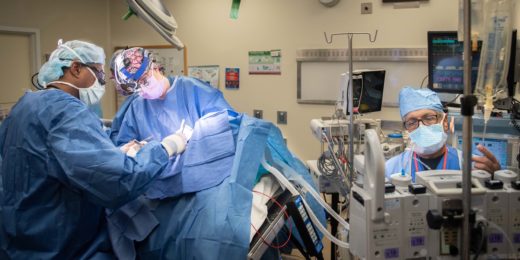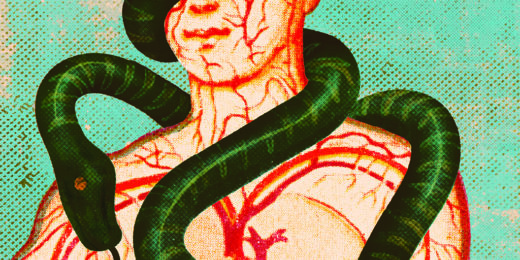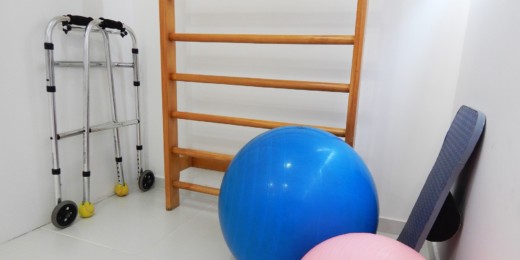Stanford specialists discuss how the source of a person's pain can affect what they feel, and the connection between chronic pain and psychological factors.
Category: Anesthesiology & Pain Management
Ouch: Understanding pain — Part 1
How does a backache translate into such an uncomfortable sensation? And why does some pain go on and on? Stanford pain medicine specialists provide answers.
“Frankly terrifying”: A podcast about drug shortages in the U.S.
In this 1:2:1 podcast, host Paul Costello discusses drug shortages with Stanford and Veterans Affairs anesthesiologist Ed Mariano.
Taking benzodiazepines boosts chances of long-term opioid use
Patients who receive prescriptions for both opioids and benzodiazepines are more likely to use opioids long term, Stanford researchers have found.
A promising new anesthetic — discovered with help from a computer
Using drug-designing software, Stanford researchers found a new anesthetic that appears to work while maintaining blood pressure.
National opioid group addresses challenge of addiction and pain management
Stanford anesthesiologist Edward Mariano discusses the progress and goals of the National Academy of Medicine's opioid collaborative.
Tapping patients’ wisdom for C-section pain management
Women scheduled for C-sections know the levels of pain relief they'll need, and are happier with their experience if given a choice.
Flagging a cholesterol-raising disease using AI
Stanford researchers have created an algorithm to detect familial hypercholesterolemia, a hard-to-diagnose genetic disease.
Make it stop: New frontiers in pain research offer hope
A Stanford anesthesiologist is working to understand why pain becomes agonizing and chronic by examining the role of cells known as microglia.
Can we address both chronic pain and the opioid crisis? Yes, pain doctors say
Stanford pain researchers say we can curb the prescription opioid crisis, while treating pain, by using a variety of tactics.
An easy way to predict chronic pain following surgery: Ask patients how they’re feeling
The best way to predict which patients will suffer chronic pain after surgery is to ask them how they're feeling, Stanford researchers find.
For patients on antidepressants, a common opioid is less effective
Patients who are taking the most common type of antidepressant may feel more pain when taking certain opioids, Stanford researchers have found.
Pain is unpleasant, and now scientists have identified the set of responsible neurons
Scientists have pinpointed the ensemble of neurons that specifically gives rise to the unpleasantness of pain in the brain.
How early physical therapy can lessen the long-term need for opioids
Patients who undergo physical therapy soon after a pain diagnosis are less likely to use opioids in the long term, a Stanford-Duke study finds.
“Safely doing less” to lower addiction risk from opioids prescribed by dentists
Young people prescribed opioids by dental providers were at increased risk of developing opioid addiction in the following year, a Stanford study found.
Focusing on psychological treatment for patients with pain
Stanford Medicine pain psychologist Beth Darnall wants to see psychology incorporated into pain treatment. She discusses that in a new interview.
















